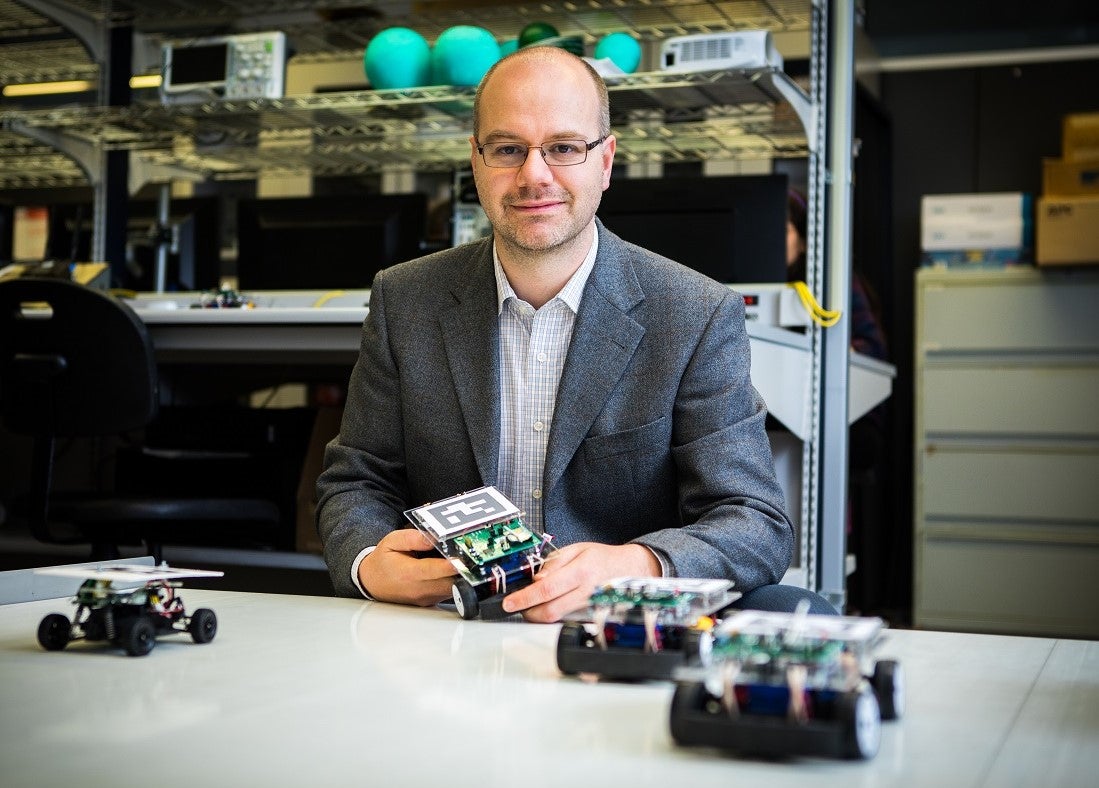Just over $400,000 in federal funding was announced today for a cybersecurity project led by a Waterloo Engineering professor.
Sebastian Fischmeister, a professor of electrical and computer engineering, heads a six-member team developing an enhanced cybersecurity system to protect Canada's energy infrastructure.
The project, which is backed by Natural Resources Canada, also involves Bruce Power and Palitronica Inc., a startup company with roots in Fischmeister's lab, the Real-time Embedded Software Group.

Sebastian Fischmeister poses in his lab at Waterloo Engineering.
"In today's world of connected safety-critical systems, it's no longer enough to deliver just safe systems; systems must now be safe and secure," Fischmeister said.
"As a part of a comprehensive research agenda on safety and security in my group, this project creates and tests new technology to mitigate security threats in the supply chain when sourcing parts and systems out of region."
The innovative hardware assurance system being developed by researchers will detect compromised parts and devices to help ensure the safety and reliability of the country's energy delivery.
That is especially important as growing complexity in supply chains makes it more difficult for organizations to identify and mitigate potential risks as they can lose sight of the supply chain security practices of their vendors and suppliers.
'Investing in cutting-edge technologies'
"Our lives have become increasingly digital which means the security threats we face are also becoming digital," Natural Resources Minister Seamus O'Regan Jr. said in a media release.
"We're investing in cutting-edge technologies with universities and industry leaders to protect Canada's energy sector from cyber threats and keep our critical infrastructure secure."
Bruce Power will provide equipment, evaluate machine learning processes and evaluate the overall performance of the new system. Palitronica, a Kitchener-based cybersecurity hardware and software company, is providing hardware sensors to enable development of the technology.
The University of Waterloo and Bruce Power are also contributing financially, bringing total investment in the project to over $830,000. The work is scheduled to continue until next spring.
"Cybersecurity is a core area in the University's research profile," Mary Wells, the dean of Waterloo Engineering, said in the release. "We are delighted to employ our research excellence to advance the state of the art in a sector as important to the Canadian public as the energy sector."






